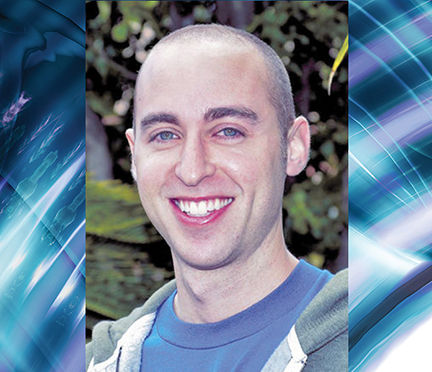Today is the final day of the NBA regular season, so I feel it’s only appropriate to don my basketball hat and talk some hoops. I won’t be doing the tired old season finale column with an MVP pick or
Today is the final day of the NBA regular season, so I feel it’s only appropriate to don my basketball hat and talk some hoops. I won’t be doing the tired old season finale column with an MVP pick or an NBA championship prediction. (If I were, I’d say Stephen Curry and Spurs over Cavs.) I’m more interested in talking about where the NBA currently sits in the zeitgeist, because it has taken a very sharp turn from where it resided not too long ago.
Starting in the early 90s and into the turn of the century, there seemed to be this growing sense that the NBA was dead. Hating on pro basketball became its own team sport. It was kind of cool to say that nobody cared about the NBA. In terms of raw numbers, I’m not sure that was the case, but the way we talked about the game changed dramatically. Heroes were few and far between and it had become a stagnant brand of basketball with far too many isolations, too many post-ups and too much physicality. That style was breeding a certain type of player who would, under ideal circumstances, resemble Allen Iverson or Kobe Bryant, but more realistically resemble Stephon Marbury or Antoine Walker.
People turned on the league because of this stigma of selfish play, which was going hand in hand with skyrocketing salaries. Teams were perpetuating the process by overvaluing scorers, so owners and general managers were feeding the beast as people turned their backs on the product.
But here we are in 2015 on the heels of a few of the NBA’s best seasons ever. Viewership is up, franchise values are ballooning and the league’s talent level is probably higher than it’s ever been. So how did we get here?
The main reason is that both the act of watching and playing the game of basketball has become much more sophisticated. There are still people out there who cling to this notion that nobody cares about the NBA, but there are more people analyzing the game from advanced perspectives than ever before. If you follow the right accounts on Twitter, any random night during the regular season can be filled with more in-depth information than you’d get during an NBA Finals game 20 years ago.
Some, including Charles Barkley, dismiss the idea of “advanced metrics” as a product of people who watch games from their mothers’ basements. I can’t say for sure where they’re watching from – or their level of Cheeto intake, for that matter – but the information gleaned has increased awareness, identified flaws and created a better product for fans. A player like Antoine Walker – sorry to keep picking on ‘Toine; he’s just emblematic of an era – who was a career 32 percent shooter from three-point range, wouldn’t get the same contracts in today’s NBA, where defense, efficiency and system play have begun to shape the league. Those types of players aren’t getting the big contracts, so the right types of players are now getting the big minutes.
Most people can’t name two starters on the Utah Jazz, but anyone who really watches the league knows that Utah is currently set up to be really good for a long time. They’ll rattle off Tim Duncan, Tony Parker and Manu Ginobili as the reason why the Spurs stay relevant without mentioning that Kawhi Leonard would probably be considered the league’s most impactful two-way player if a guy named LeBron weren’t around. They may assume that the Golden State Warriors have been so great this season because Steph Curry is a magician, but their offensive spacing and league-best defensive efficiency probably deserve more credit.
So even if people don’t fully understand why the league is better, it is, and the number of people who do notice is rising. The concepts of defense and smart offense are creeping into the mindset of casual fans. We’re lucky to be around when the focus on what makes for “good basketball” has helped shape analysis from both the media and general managers.
The officiating, on the other hand…
•••
David Simon can be reached at dsimon@thegardenisland.com.


